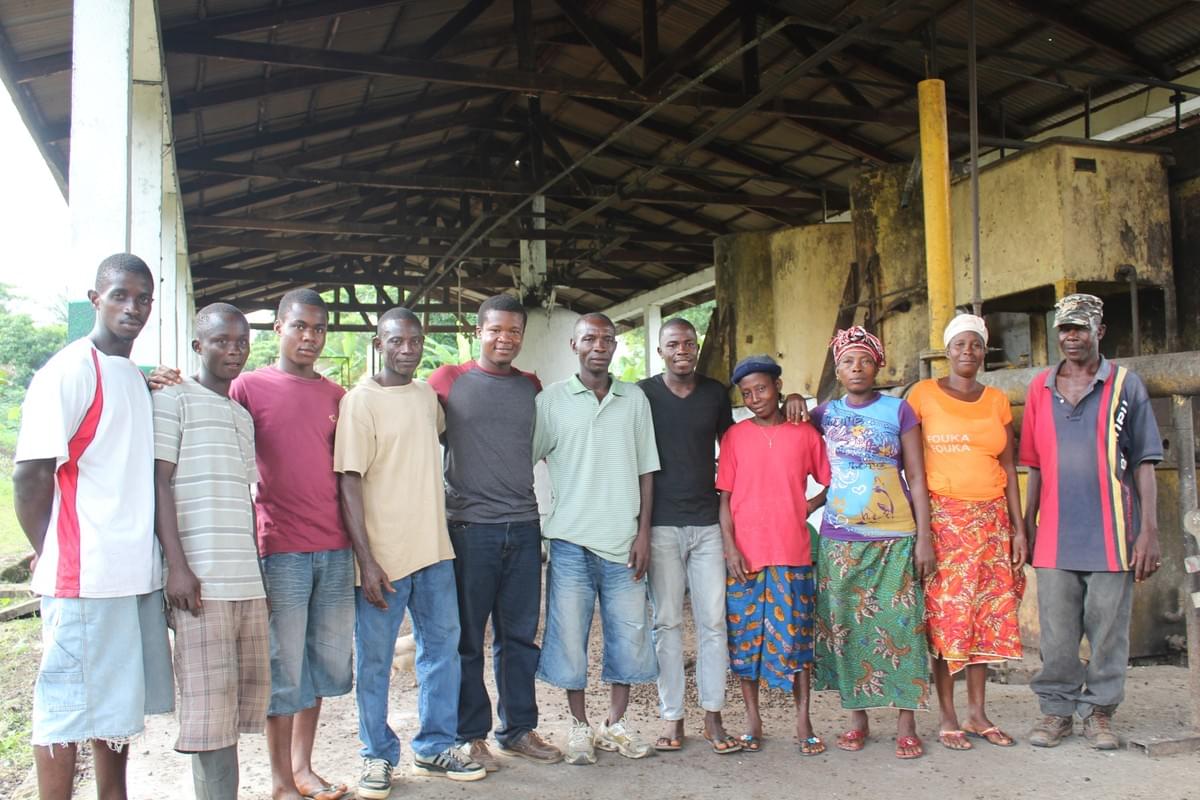Liberian entrepreneur, Mahmud Johnson, has come up with a possible solution for deforestation caused by oil palms which are already threatening biodiversity.
He is doing so through the installation of milling machines in rural communities to help small local growers increase their yields on wild-growing trees, allowing them to produce the oil more sustainably and to generate enough earnings to stay independent.
It all started while Johnson visited Liberia from the US in 2012. He learned about palm oil business from his aunt who was an intermediary buying palm oil from small producers in rural areas to sell to retailers in the urban markets.
His aunt’s retailing business went bankrupt as a result of inadequacies in the value chain, her suppliers became increasingly unreliable, and with too many shortages, her supply became inconsistent.

Johnson who was pursuing his bachelor in Economics at Dartmouth College in the US became interested in learning more about his aunt’s crumbling business.
After college, Johnson was seeking for a business prospect to pursue back home. He conducted research on palm oil and from his finding he soon learned that the lack of technology and the traditional labor-intensive methods were the key causes for the low supply.
He realized that half of the palm fruit is wasted during harvest, and a third during processing.
In a bid to create a sustainable way and help meet the huge demand for palm oils, at age 22, Johnson returned to Liberia to start a company, “J-Palm“. “We are the ones who are going to be able to create the fundamentals for long term stability and long term growth,” he said.
J-Palm is based on the principle that low-income individuals deserve to be treated with the same respect offered to the rest of society. Through a vertically integrated, no-waste manufacturing process, J-Palm creates a range of affordable, organic palm oil-based skin and hair care products. Additionally, they create clean energy solutions from palm kernels to prevent people from utilising wood charcoal. It was part of efforts to reduce deforestation resulting from the production of wood charcoal.
According to the International Union for Conservation of Nature (IUCN), oil palm yields four to 10 times more vegetable oil per hectare than any other crop.

J-Palm installed simple milling machines in eight rural communities. The machines double the volume extracted from the fruit and reduce processing time by 90 percent and in exchange the farmers that use them give J-Palm 10 percent of the palm oil they produce.
J-Palm buys the kernels from the farmers and also produces palm kernel oil at its factory. “The palm oil producers were making about $33 a month and within about three months they had increased that to about $100 a month,” said Johnson.
J-Palm also uses the oils to make a range of “Kernel Fresh” soaps, shampoos, conditioners and moisturizers while the excesses are sold to local soap-makers. He has employed 500 Liberians from disadvantaged communities as sales representatives for its Kernel Fresh range.

According to him, in 2008, the company generated $215,000 in revenue and expects to bring in $350,000 this year. In the same year, smallholders reportedly produced about 1,000 tons of crude palm oil worth approximately $470,000.
Now 28, Johnson is already considering expansion to other West African countries. He wants the world to learn about wild oil palm and alternative production models.
For him, “It is a great way to transform the lives of thousands of smallholder farmers just by making consumers aware. Most people in rural areas just persistently live in poverty when they have all this wealth around them.”

In 2014, Mahmud became a Branson Scholar at the Branson Centre for Entrepreneurship in South Africa. The following year he participated in SPARK’s IGNITE Research Competition where he proposed a research on ‘Income Shocks and Insurance Buffers During Extreme Crises’. His proposal won him €5,000 to develop his business in conjunction with the Amsterdam Business School.
Through J-Palm, Johnson wants to address the social problems in Liberia, a country where about 54% of the population lives below the poverty line, with many living in the rural areas.
J-Palm is focused on creating jobs for rural youth and women, as well as, increasing the income opportunities for palm oil farmers.










